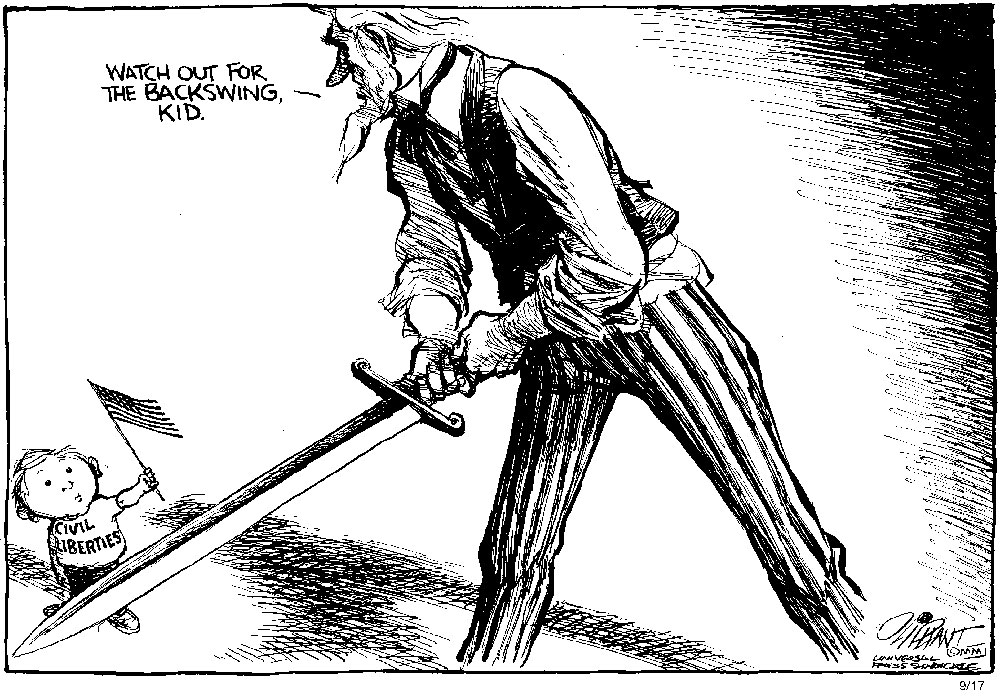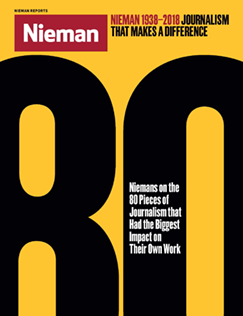
Christopher Weyant considers Oliphant’s cartoon, published days after 9/11, to be “a somber, profound, and prescient warning”
It was the mid-1980s when I read my first Pat Oliphant cartoon. I was a teenager prowling around in the back of a dusty used bookstore searching for cartoons. Sandwiched in the art section were two small shelves that held books of cartoons—mostly compilations of newspaper comics and old New Yorker cartoons. It was there I stumbled upon a small collection of Oliphant’s work covering the first term of the Reagan administration. I fell in love.
Years later, I had become a political cartoonist and was working for a newspaper in Washington, D.C. I had worked through the Clinton years and now found myself struggling in the post-9/11 environment. In these early days, tone was so difficult to negotiate for cartoonists. The nation, and my editor, wasn’t ready for the sharper end of a cartoonist’s pen.
But then Pat Oliphant created what I consider to be one of the greatest editorial cartoons of the last hundred years. Simple in its execution, it shows a tattered, embattled Uncle Sam, a reference to a cartoon he drew the day after the 9/11 attacks, but this time, Uncle Sam, sleeves rolled up, holds the sword of war, ready to swing. Behind him, a small, vulnerable child with an American flag stands watching as Uncle Sam says, “Watch out for the backswing, kid.”
What seems to be a gentle critique is actually a somber, profound, and prescient warning on what we were about to unleash. Oliphant found the perfect balance of tone and voice. He made it possible for me to understand how to deliver cutting satire in a way that my readership, still reeling from the attacks, could digest until they were able to handle more.


